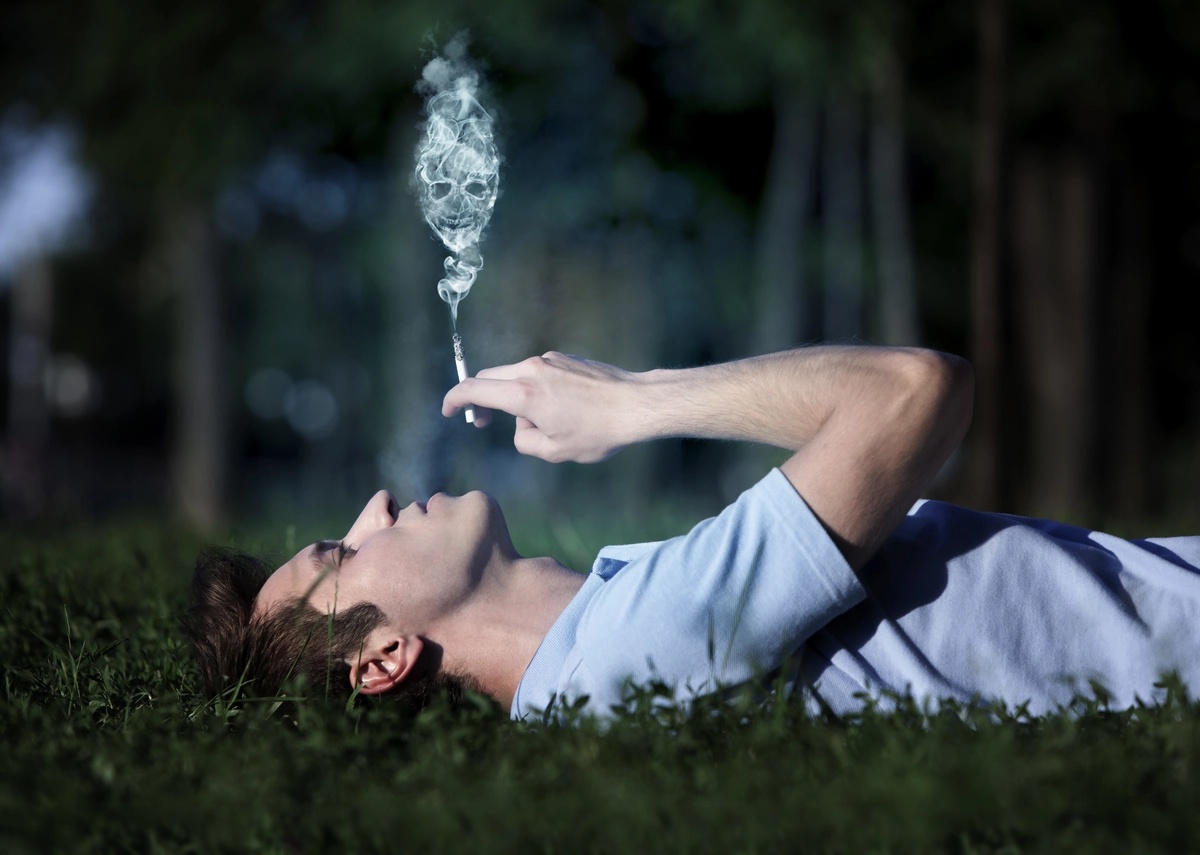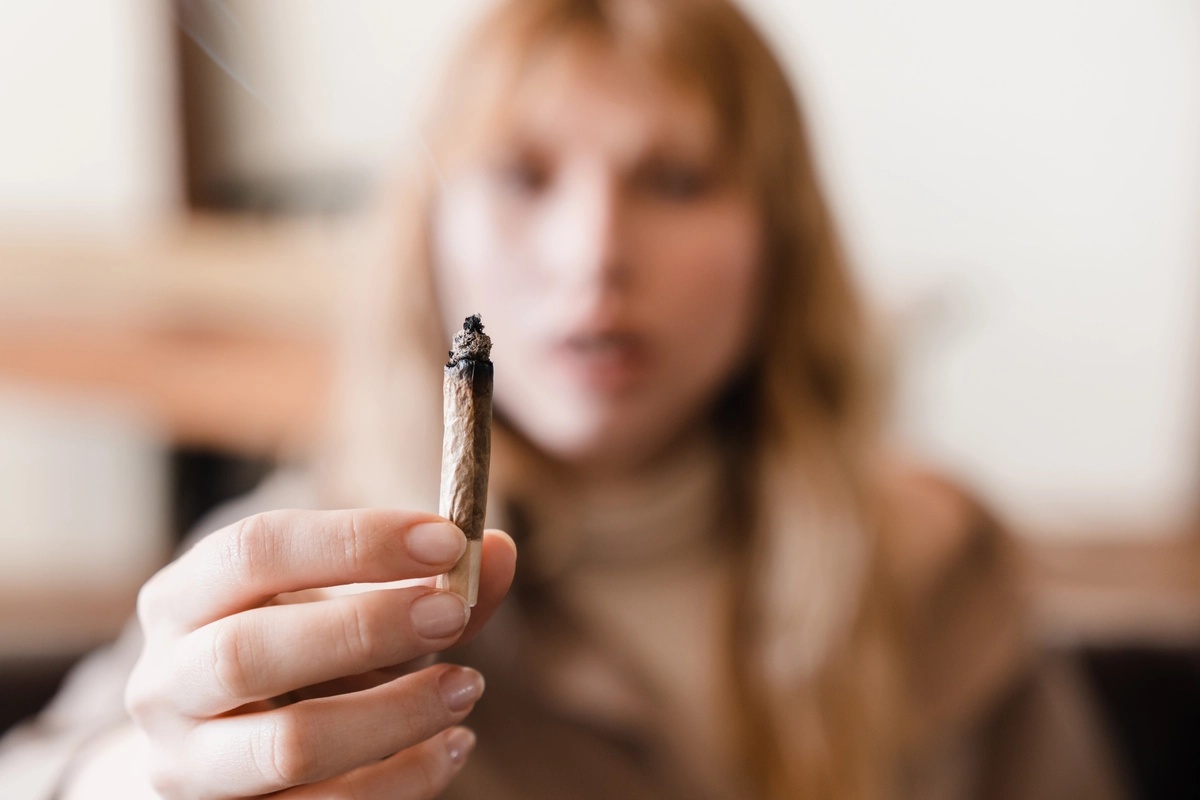Marijuana Addiction: Exploring Symptoms, Causes, & Treatment Options


Marijuana addiction may not be as severe as other substance use disorders, but it can still profoundly impact the most important aspects of life, from your well-being and relationships to work performance and more. Gain an understanding of the symptoms, causes, and treatment options for marijuana addiction — and if you or a loved one are ready to start recovery, don’t hesitate to call The Forge Recovery Center today.
What Is Marijuana?
Marijuana, also known as cannabis, is a plant that contains chemical compounds called cannabinoids. The most well-known cannabinoid found in marijuana is THC (tetrahydrocannabinol), which is responsible for the psychoactive effects that people experience when using marijuana. Another important cannabinoid is CBD (cannabidiol), which does not produce a "high" but has been associated with various potential health benefits.
Marijuana can be consumed in various forms, including smoking, vaping, edibles, and oils, and has been used for both recreational and medicinal purposes for centuries.
Is Marijuana Addictive?
When it comes to marijuana addiction, it's crucial to understand its addictive potential. Marijuana contains THC, a psychoactive compound that affects the brain, leading to addiction. Research shows that frequent use of marijuana can lead to dependence, making it challenging to quit.
Your body can develop a tolerance to THC, requiring higher doses for the same effects, increasing the risk of addiction. The more frequently you consume marijuana, the higher the likelihood of developing marijuana use disorder. Certain risk factors such as genetic predisposition, early exposure to drugs or alcohol, and environmental influences also play a role in increasing the susceptibility to addiction.
What Is Marijuana Addiction?
Marijuana addiction, also known as cannabis or marijuana use disorder, is a condition characterized by the compulsive use of marijuana despite negative consequences. Individuals who struggle with marijuana addiction may find it difficult to control their use, experience withdrawal symptoms when trying to quit, and prioritize marijuana use over other responsibilities. This can lead to various negative implications on a person's physical health, mental well-being, relationships, and overall quality of life.
Treatment options for marijuana addiction typically involve therapy, support groups, and in some cases, medication to help manage withdrawal symptoms and cravings. It is important for individuals struggling with marijuana addiction to seek help and support in order to overcome this substance use disorder.

Are You Struggling with Mental Health or Addiction?
We Can Help. Call Us Now!
CALL: 877-839-1772
Signs of Marijuana Addiction
Marijuana or cannabis addiction carries certain behavioral and physical signs that could reflect a dependence. Here’s an overview of the signs and symptoms:
Behavioral Signs
When it comes to recognizing behavioral signs of marijuana addiction, observe changes in your actions and habits. You might notice increased secrecy or withdrawal from social activities. Identify behavioral patterns like neglecting responsibilities or losing interest in hobbies you once enjoyed.
Also, look out for changes in behavior such as mood swings, irritability, or sudden outbursts. These can be red flags indicating a deeper issue related to marijuana use. In general, pay attention to any unexplained behaviors that seem out of character for you.
Physical Symptoms
Physical signs of marijuana dependence can include bloodshot eyes, increased heart rate, or a persistent cough from smoking. If you’re a regular or occasional user, it’s important to recognize the impact of long-term marijuana use on your body, which may lead to respiratory issues or memory problems.
Marijuana addiction can also affect your body by causing weight gain or loss due to changes in appetite. You may experience fatigue, lack of motivation, or difficulty concentrating as physical symptoms worsen over time.
Marijuana Addiction Treatment Overview
Treatment for marijuana addiction typically starts with detoxification before proceeding to inpatient or outpatient care. Aftercare is the last step, but incredibly important, as it focuses on providing patients with the necessary support to maintain long-term sobriety. Here’s how the treatment process works:
Detoxification
When detoxifying from marijuana, your body is flushing out any remnants of the drug. This process is crucial for overcoming any substance addiction. During detox, you may experience withdrawal symptoms like insomnia and irritability.
Inpatient Care
In inpatient care, you benefit from a controlled environment. The structured setting of inpatient treatment ensures constant monitoring and support. Therapy options in these programs are intensive, offering a higher level of care.
Outpatient Treatment
Outpatient treatment for marijuana addiction provides flexibility while receiving support. These programs allow you to attend therapy sessions and maintain your daily routines simultaneously, offering a balanced and flexible approach to recovery.
Aftercare
Aftercare plays a vital role in maintaining sobriety post-treatment. It involves strategies to prevent relapse, such as ongoing counseling and support groups, as consistent support is essential for long-term recovery success.
Other Treatment Options
Support Groups
Support groups are valuable in the journey of overcoming marijuana addiction. Connecting with individuals facing similar challenges fosters understanding and encouragement. Various types of support groups cater to different needs during recovery.
Medical Interventions
Medical interventions can aid in managing withdrawal symptoms during marijuana addiction treatment. Medications prescribed by healthcare professionals help alleviate discomfort during the detox process. Healthcare providers play a crucial role in guiding you through the treatment journey.

Are You Struggling with Mental Health or Addiction?
We Can Help. Call Us Now!
CALL: 877-839-1772
Therapies Used to Treat Marijuana Addiction
Within inpatient or outpatient rehab, you’ll be exposed to different types of therapies to support your recovery journey. Some examples include cognitive-behavioral therapy (CBT), a form of psychotherapy, and mindfulness training:
Cognitive Behavioral Therapy (CBT)
In CBT sessions, you’ll work with a therapist to identify and change negative thought patterns that contribute to addiction. By recognizing these thoughts, you can learn healthier ways to cope with triggers and cravings. CBT aims to modify behaviors associated with marijuana use by addressing underlying issues.
CBT is highly effective in treating addiction as it helps you develop skills to manage stress, anxiety, and other emotions without relying on marijuana. Through structured sessions, you will learn practical strategies to resist the urge to use marijuana when faced with triggers. Over time, this therapy empowers you to take control of your actions and make healthier choices.
Incorporating CBT into your treatment plan provides personalized support tailored to your specific needs. This therapy equips you with tools to navigate challenging situations and build resilience against relapse. By actively participating in CBT sessions, you can gain insights into your addictive behaviors and work towards sustainable recovery.
Mindfulness Training
Mindfulness training offers a holistic approach to addiction recovery by promoting self-awareness and emotional regulation. By practicing mindfulness techniques, you can cultivate a non-judgmental awareness of your thoughts and feelings, reducing impulsivity in decision-making related to marijuana use.
Embracing mindfulness in your daily routine enables you to recognize triggers that may lead to substance abuse and respond mindfully instead of reactively. This heightened awareness allows you to pause, reflect on your cravings, and choose healthier coping mechanisms. Incorporating mindfulness practices like deep breathing or meditation can enhance your ability to manage stressors effectively.
How Does Marijuana Dependency Develop?
Marijuana addiction is typically caused by a combination of factors, rather than a single source. Below, we’ve outlined how your environment, genetic predisposition to addiction, and other factors can contribute to a cannabis dependency:
Environmental Influences
Marijuana dependency can develop due to various environmental factors. Exposure to the substance at a young age, peer pressure, and availability can significantly impact your likelihood of developing dependency.
Genetic Predisposition
Genetics also plays a crucial role in the development of marijuana dependency. If you have a family history of substance abuse disorders, your genetic makeup might predispose you to becoming dependent on marijuana.
Psychological Factors
Psychological mechanisms contribute to the progression from casual use to dependency. Your mental health, coping mechanisms, and underlying emotional issues can all influence your relationship with marijuana.
Progression From Recreational Use
Initially, using marijuana recreationally may seem harmless. However, as you continue to use it regularly, your tolerance levels increase, leading to higher consumption and potential dependency.
Neurological Changes
With prolonged use, marijuana alters the brain's reward system. The release of dopamine reinforces the behavior, making you more likely to seek out the substance for its pleasurable effects.
Withdrawal Symptoms
Dependency on marijuana can manifest through withdrawal symptoms such as irritability, insomnia, and loss of appetite when you attempt to cut back or quit using the substance.
Are You Struggling with Mental Health or Addiction?
We Can Help. Call Us Now!
CALL: 877-839-1772
Effects of Marijuana Addiction
Marijuana has both short-term effects and adverse long-term consequences to be wary of, which we’ve outlined below:
Short-Term Impact
When you consume marijuana, it quickly enters your bloodstream and travels to your brain. The immediate effects include altered senses, mood changes, impaired body movement, and difficulty with thinking and problem-solving. These short-term consequences can lead to risky behaviors and poor decision-making.
Your cognitive functions may be significantly affected by marijuana addiction in the short term. Memory issues, impaired coordination, increased heart rate, anxiety, and paranoia are common experiences. These effects can impact your daily activities and interactions with others.
In the short term, you may exhibit behavioral changes such as heightened impulsivity, decreased motivation, and altered perceptions of time and space. These changes can interfere with school performance, relationships with family and friends, and overall well-being.
Long-Term Consequences
Long-term marijuana addiction can have lasting effects on your physical health. Chronic use of marijuana is linked to respiratory issues like bronchitis and chronic cough. Long-term users may experience increased heart rate variability and potential cardiovascular risks.
The prolonged use of marijuana can result in cognitive impairments that persist over time. Memory problems, decreased attention span, and reduced ability to learn new information effectively are some of the cognitive consequences associated with long-term marijuana addiction.
As a result of prolonged marijuana addiction, individuals may also struggle with emotional regulation difficulties, impacting their mental health and overall quality of life. Persistent use can lead to dependency issues that require professional intervention for effective treatment.

Diagnosing Marijuana Addiction
When identifying marijuana addiction, healthcare professionals follow specific criteria found within the DSM-5. You must meet at least two of the following criteria within a year:
Using more marijuana than intended
Unsuccessful attempts to cut down use
Spending significant time obtaining or using marijuana
Cravings that interfere with daily life
Neglecting responsibilities due to marijuana use
To diagnose addiction accurately, healthcare providers conduct thorough assessments. They evaluate your symptoms, behaviors, and patterns of marijuana use. The process aims to determine the severity of addiction and develop an effective treatment plan.
Severity Levels
Understanding the severity levels of marijuana addiction is crucial for tailored treatment. In mild cases, you may experience minimal negative consequences from marijuana use. However, moderate addiction involves more pronounced effects on your daily life and functioning.
Severe addiction signifies a significant impact on various aspects of your life. This stage often requires intensive interventions and support to address the complex challenges associated with addiction. Treatment approaches vary based on the severity level, with more severe cases necessitating comprehensive care strategies.
Differentiating between mild, moderate, and severe stages of addiction allows healthcare professionals to customize treatment plans according to individual needs. By addressing the specific challenges associated with each severity level, interventions can be more targeted and effective in promoting recovery.
Are You Struggling with Mental Health or Addiction?
We Can Help. Call Us Now!
CALL: 877-839-1772
Addiction Prevalence
To give you an idea of how common marijuana use is and the prevalence of addiction, we’ve gathered some of the latest data points in the U.S. and globally:
Marijuana Usage Rates
Marijuana usage rates in the U.S. and globally have been steadily increasing in recent years. In the U.S., a survey conducted by the National Institute on Drug Abuse found that in 2020, 49.6 million Americans aged 12 and older reported using marijuana in the past year. This represents nearly 18% of Americans aged 12 or older.
Globally, the World Health Organization estimates that around 147 million people, or 2.5% of the world population, use marijuana annually, with the highest rates of use in North America and Western Europe. The legalization of marijuana in various countries has contributed to the normalization of its use and has led to an increase in overall consumption rates worldwide.
Marijuana Addiction Statistics
Marijuana addiction statistics in the U.S. reveal a concerning trend. As the most commonly used federally illegal drug in the country, over 48 million people — or 19% of Americans — used it at least once in 2021. In the U.S., approximately 10% of people who smoke cannabis for the first time become addicted, with 30% of current users meeting the criteria for addiction.
Closing Thoughts
You've learned about marijuana addiction, its signs, effects, treatment options, and prevalence. Understanding the development of dependency on marijuana and how it can impact your life is crucial. Recognizing the signs early on and seeking appropriate treatment can make a significant difference in overcoming addiction.
Take charge of your well-being by staying informed and seeking help if you or someone you know is struggling with marijuana addiction. Remember, you are not alone in this journey towards recovery. Reach out to professionals, support groups, or loved ones for assistance. Your commitment to addressing addiction can lead to a healthier and happier future.
Treatment for Marijuana Addiction in Orange County
Marijuana addiction may not be as severe as other substance use disorders, but that doesn’t mean it’s harmless. If dependence becomes an addiction, you could find yourself feeling sluggish, not thinking as clearly, or even developing respiratory issues due to smoke consumption. Not to worry — treatment is available to help you overcome marijuana use disorder, so you can return to a sharp mind and healthy body.
Our team of mental health and treatment experts is ready for you here at The Forge Recovery Center, where we offer a number of proven therapies to guide your path to recovery. Contact us today if you or a loved one are ready to face marijuana addiction head-on and step into a new, drug-free lifestyle.
Treatment Modalities We Offer
At The Forge Recovery Center, we offer a number of proven treatment modalities to guide your path to recovery, including:
Case Management
Case management offers essential support to patients, guiding them through the required time and resources for recovery, thereby enhancing their chances of overcoming opioid addiction.
CBT
Cognitive-behavioral therapy (CBT) is a potent technique that assists individuals in recognizing and modifying detrimental thoughts and behaviors linked to drug misuse, including fentanyl abuse.
DBT
Dialectical behavior therapy (DBT) aids individuals in acknowledging their emotions and pursuing positive change, vital for those with high substance tolerance and battling addiction.
EMDR
EMDR therapy addresses the traumatic memories that could instigate addiction, employing eye movements to process these events and diminish their impact on one’s life.
Experiential
Experiential therapy allows those in recovery to face past traumas, often a major factor in opioid misuse, and discover new ways to appreciate life without substance reliance.
Family Counseling
Family counseling is instrumental in bolstering an individual’s struggle against fentanyl addiction, with family members playing a significant role in promoting healing and resilience.
Group Therapy
Group therapy creates an environment where individuals can exchange their experiences and offer mutual support, emphasizing that no one is alone in their fight against addiction.
Individual Therapy
Individual therapy sessions tackle the unique challenges and behaviors of an individual, steering them toward a life devoid of drugs and alcohol.
MAT
Medication-assisted treatment (MAT) merges behavioral therapies with approved medications to tackle opioid use disorders, providing support when needed.
TMS
Transcranial magnetic stimulation (TMS) employs magnetic fields to stimulate brain cells, offering a ray of hope in curbing intense cravings and disrupting the cycle of addiction.
Motivational Interviewing
Motivational interviewing enables individuals to uncover their motivation for change, particularly beneficial for those grappling with cocaine or fentanyl addiction.
Trauma-Informed Care
Trauma-informed care considers how trauma symptoms may affect a person’s addiction and recovery, ensuring a compassionate and effective treatment strategy.



